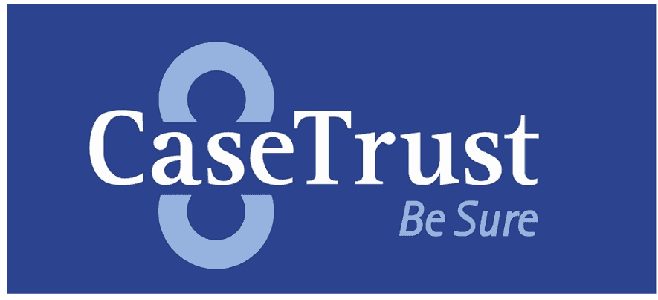[:en]
General Overview
Many Singaporeans and foreigners living and working in Singapore have insurance policies. Aside from the above, there are also foreigners who do not work or live in Singapore but have insurance policies here. What they and their loved ones need to know is how to go about claiming these insurance policy proceeds should the need arise. This article will explain how the insurance policy nomination works and the advantages of making such a nomination for your insurance policy.
As an overview, insurers in Singapore are licensed and governed under the Insurance Act (Cap. 142). The Insurance Act governs the regulation of insurance business in Singapore. The relevant governmental authority in charge of administering this Act is the Monetary Authority of Singapore (“MAS”).
According to MAS:[1]
- Insurers may carry on insurance business in Singapore as licensed insurers or foreign insurers.
- Licensed insurers can carry on direct life and/or general business, life and/or general reinsurance business or captive insurance.
- Foreign insurers carry on insurance business in Singapore under a foreign insurer scheme established under Part IIA of the IA.
Nomination of Beneficiaries
To make a nomination, a policy owner must be the life assured under the policy and be at least 18 years old.[2]
Muslim policy owners may make both trust and revocable nominations over their life policies, but revocable nominations are subject to Syariah law.[3]
With respect to nominations, policy owners should be aware of the differences between making a nomination and not making a nomination:

Types of Insurance Policy Nominations A Person Can Make
-
Trust Nomination (Section 49L Insurance Act)
This type of insurance policy nomination allows the policy owner to create a statutory trust of the policy proceeds in favour of the nominated beneficiaries.[5] The policy owner still pays the insurance premiums, but all benefits (living and death) belong to the nominated beneficiaries.
There are several things to note with regards to a Trust Nomination:

Procedure:
Under the Insurance (Nomination of Beneficiaries) Regulations 2009, Rule 4(1), the policy owner must complete a prescribed form (Form 1) and lodge it with the insurer that issued the policy. The form has to be completed in the presence of 2 adult witnesses (at least 21 years old) and must not be nominees or spouse of any nominees[7]
Revocation:
Section 49L(7) Insurance Act provides that a policy owner may revoke a Trust nomination “if, and only if, the prior written consent to the revocation has been obtained” from each of the nominees.
Under Insurance (Nomination of Beneficiaries) Regulations 2009, Rule 4(2), the policy owner can revoke a Trust nomination by completing Form 2 and lodging it with the insurer that issued the relevant policy.
Payment of insurance proceeds
The nominee must notify the insurance company and send the completed Trust Nomination form to the company. All benefits from the policy will be released to the nominees.
-
Revocable Nomination (Section 49M Insurance Act)
This type of insurance policy allows the policy owner to nominate any person as a beneficiary. And only the death benefits will be payable to the nominees. All living benefits will be paid to the policy owner.[8]
There are several things to note with regards to a Revocable Nomination:

Procedure
Under the Insurance (Nomination of Beneficiaries) Regulations 2009, Rule 5(1), the policy should indicate each nominee’s portion of the death benefits under the relevant policy, by completing Form 4 and lodging it with the insurer that issued the relevant policy. The form has to be completed in the presence of 2 adult witnesses (at least 21 years old) and must not be nominees or spouse of any nominees.
Revocation
Under Section 49M(4) of the Insurance Act, a policy owner may revoke a nomination at any time in such manner as may be prescribed by MAS.
Payment of insurance proceeds
The claims procedure is typically governed by express terms and conditions in the policy.
Restrictions: Nomination on behalf of policy owner lacking capacity
A policy owner may lack mental capacity to make a nomination of beneficiaries for their insurance policy. Even if the court has appointed a deputy under a Court Order, the deputy is restricted from making an insurance nomination for the policy owner.[9]
Benefits of Making A Nomination
- The policy owner has the discretion to choose who he or she wants to nominate as the beneficiary of the policy proceeds.
- If there is a nomination, the entire insured sum can be paid directly to the nominee instead of just S$150,000. There is no need for the application for any Court Order before the insured sum is paid to the nominee. This saves precious time and legal costs and provide the nominee with quick access to the funds, thereby avoiding any financial or cash flow difficulty which the surviving family members of the policy owner may face in the event the policy owner passes away.
- If the policy owner makes a Trust Nomination under section 49L of the Insurance Act, the insured sum does not form part of the estate of the policy owner. This means that whatever creditors the policy owner may have, they will not be able to gain access to the policy proceeds because they are considered trust assets protected by the Singapore trust laws. In turn, this ensures that the interests of the spouse and children are taken care of.
[1] httpssss://www.mas.gov.sg/regulations-and-financial-stability/regulations-guidance-and-licensing/insurance.aspx
[2] httpssss://www.lia.org.sg/system/files/document_holder/Consumer_Guides/YGTNIN_2015_English.pdf
[3]httpssss://www.moneysense.gov.sg/~/media/Moneysense/Guides%20and%20Articles/Guides/Nomination%20of%20Insurance%20Nominees_English.pdf (pg 3)
[4]httpssss://www.mas.gov.sg/~/media/resource/legislation_guidelines/insurance/sub_legislation/Insurance_SL/INSURANCE%20GENERAL%20PROVISIONS%20REGULATIONS.pdf
[5] S49L(2) Insurance Act, “nomination shall create a trust of the policy moneys in favour of the nominee or nominees”.
[6]S49L(4) Insurance Act, “all policy moneys subject to the trust created under subsection (2) shall not form part of the estate of the policy owner or be subject to his debts”
[7]httpssss://www.moneysense.gov.sg/~/media/Moneysense/Guides%20and%20Articles/Guides/Nomination%20of%20Insurance%20Nominees_English.pdf
[8]httpssss://www.moneysense.gov.sg/~/media/Moneysense/Guides%20and%20Articles/Guides/Nomination%20of%20Insurance%20Nominees_English.pdf (Pg 9)
[9]httpsssss://www.publicguardian.gov.sg/opg/Lists/Guides/Attachments/29/Deputys%20Guide%20(Oct%202016).pdf
Download article here.
Photo Credits: Source[:]



